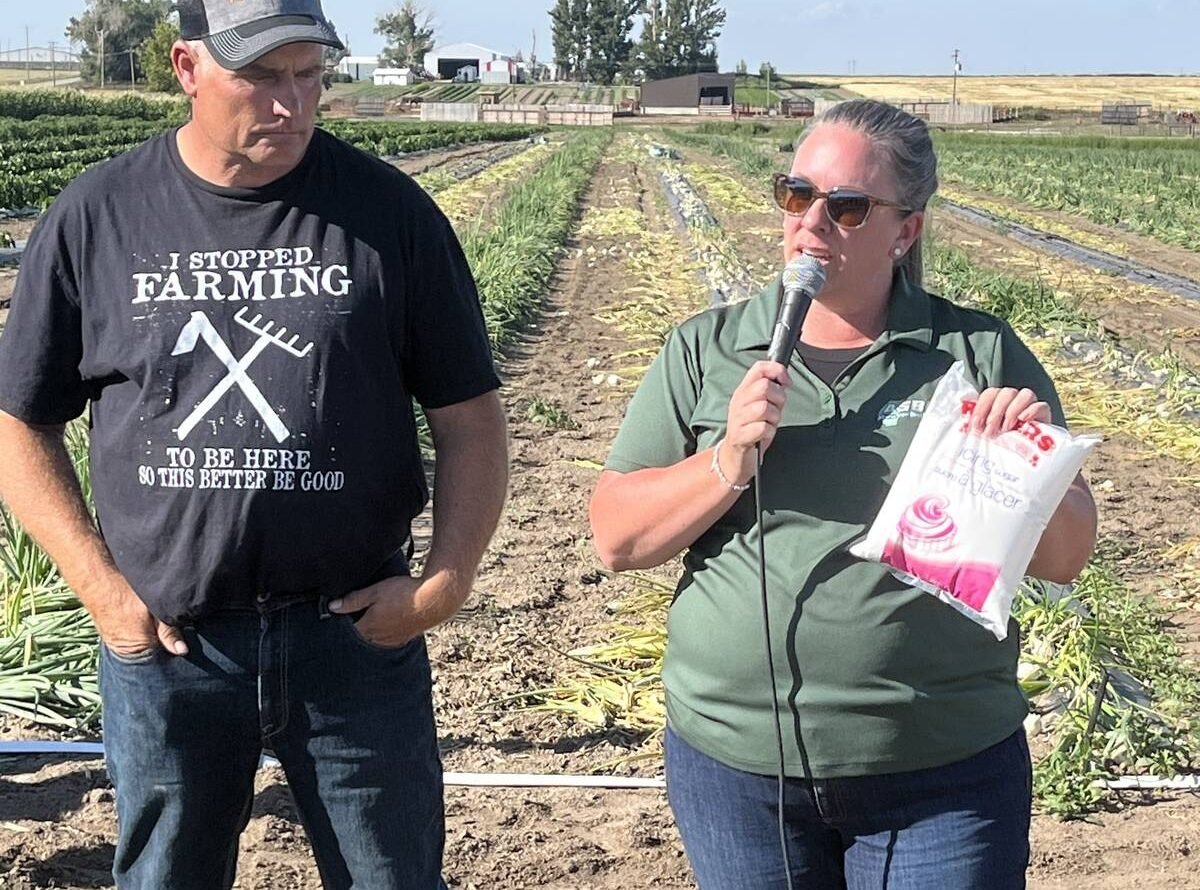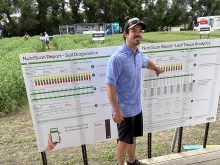Six independent companies from Saskatchewan and Manitoba join forces with accounting firm to form bigger operation
LANGHAM, Sask. — Nearly every company in Canadian agriculture has difficulty finding and retaining employees. But it’s even more challenging for a small business that has a handful of employees.
“If one of my agronomists decides on May 1 that they no longer want to do this, or want to pursue other ventures, that’s half my staff,” said Travis Wiens, co-owner of Annex Agro, an agronomy firm in Milestone, Sask., south of Regina.
Attracting and retaining skilled workers is one of reasons why Annex Agro has joined forces with MNP and five other crop advisory firms to create a bigger company. The firms announced the creation of the new business, which will use the MNP brand, just before the Ag In Motion farm show near Langham.
Read Also

Alberta’s beets a sweet domestic segment in Canada’s sugar supply
The sugar beet industry is showcased during a Farm to Table tour, as Taber features the last remaining sugar beet processing plant in all of Canada.
The partnership includes four companies in Saskatchewan and two in Manitoba:
• Annex Agro, Milestone
• Arrow Crop Management, Regina
• Max Ag Consulting, Plenty, Sask.
• Sure Growth Solutions, Langenburg, Sask.
• 4R Agronomy, Brandon, Carberry, Man.
• Elite Ag, Brunkild, Man.
In February, the six independent crop advisers had a meeting in which they discussed the details of becoming one company.
Shortly after, they hired MNP to help structure the joint business.
“In March, (MNP) said, ‘this looks like a pretty good idea. Can we participate?’ ” Wiens said at Ag In Motion.
The owners of the crop advisory firms quickly realized that MNP would help them compete with the big players in the business.
For instance, it should make it easier to recruit employees.
“We’re a mom and pop, single shingle business,” Wiens said.
“Having that MNP nameplate behind it now (will) help attract and retain talent.”
Another advantage of size is it’s nearly impossible to know everything about crop production. A small company with one or two agronomists will have general knowledge and some specializations, but they may not understand new technologies like biological products.
“We provided a strong level of service, but the new challenge became staying current with the fast moving industry,” said Dan Fox, owner of Elite Ag.
Wiens made a similar comment about new technology.
“We were six agronomy companies with all six of us trying to learn drones and the application for drones,” Wiens said.
Now, they can employ in-house specialists and provide a higher level of service.
“The sharing of the brain power, and giving our customers access to more than just ourselves,” he said.
The coalition expects to launch the new business, this fall.
Looking forward, it’s possible that more firms will choose to join the company, which is fine because there’s a real opportunity to expand the agronomy business and attract new clients.
Most growers on the Prairies do not use a certified crop adviser, Wiens said.
“Less than 20 percent of western Canadian farmers have an agronomist,” he said, explaining that number comes from the Certified Crop Advisors program.
“There’s a lot of growth potential…. There are a large group of farmers who don’t use a pay-for-service agronomist.”
















